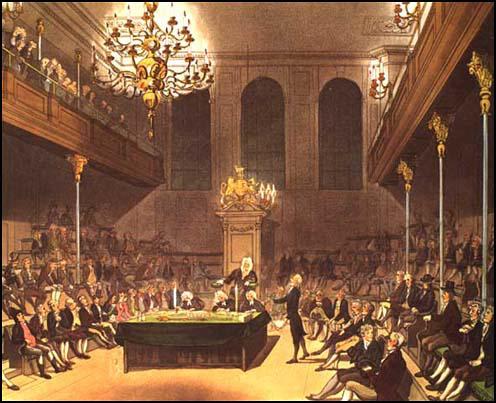In years to come, Saturday 30 November 2013 may be remembered as the last time that a genuinely united Kingdom of Great Britain and Northern Ireland came together to celebrate St Andrew’s Day (Scotland’s official national day). With a referendum on Scottish independence set to take place in Scotland on 18 September 2014, the British state’s survival is far from certain. A majority vote in favour of independence would not result in the immediate break-up of the UK (though the Scottish National Party have recently called for full Scottish separation by March 2016 if independence is endorsed at the ballot box). But even so, it is clear that victory for the independence campaign would leave British national unity – terminally battered and bruised – as little more than a wishful façade. If the Great British edifice crumbles to the ground, what are we to make of the pieces that remain?
On Saturday 30 November 2013, Iain McLean (Professor of Politics and Fellow of Nuffield College, Oxford) set out to explore the implications of precisely this question. As part of the Department of Politics and International Relations’ ‘Engagement with Theory’ alumni conference day (full audio here), aimed at bringing theoretical scrutiny to bear on pressing modern political issues, Professor McLean presented a paper entitled ‘A Codified Constitution for the (Rest of the) United Kingdom’ (Podcast). McLean’s lecture asked awkward questions about an area of UK politics that has escaped satisfactory explanation for centuries: the British constitution.
Professor McLean was eager to emphasise that there is a paradox surrounding the British constitution. It is an unwritten, uncodified political constitution – and some would even argue that it doesn’t really exist. And yet, the strongest intellectual drive towards defining the British constitution tends to come from the Scots – one group that may very soon cease to be part of the Great Britain.
The Act of Union of 1707 created a distinctly British state by fusing Scotland together with England and Wales. From this point onward, Great Britain would be ruled by a combined British Parliament in Westminster. Devolution in the late twentieth century has brought a considerable degree of legislative autonomy to both Scotland and Wales; and yet the Westminster Parliament retains the power of legislating for the whole of the UK.
But, as Professor MacLean noted in his paper, the Act of Union of 1707 was not simply a great political merger, creating a newly formed, British body of constitutional law, and a legislature to generate it in perpetuity. It involved the negotiation of inviolable legal protections for Scottish institutions (such as the Scottish Church) and for Scottish law. 1707 ensured that from the outset, the British constitution counterbalanced the supremacy of the Westminster Parliament with legal safeguards and a proud rejection of uniformity.
Professor McLean argued that awareness of this fact spells disaster for one of the most influential and enduring ways of understanding the British constitution. For over a century, theorists and politicians have been drawn to the ideas of A. V. Dicey, a late nineteenth century legal theorist. Dicey maintained that the primary principle that operates within the British constitution is the absolute sovereignty of the Westminster Parliament. Parliament may pass any law, or revoke any existing law, as it pleases.
But there is a problem with this theory. Since Parliament cannot revoke the inviolable clauses in the Act of Union, it cannot be absolutely sovereign. Driven by their concern to ensure that Scottish institutions and laws are protected, Scots have emphasised exactly this contradiction, and have therefore significantly contributed to re-envisaging how the British state works – not just within Scotland, but within England, Wales, and Northern Ireland.
So what is the nature of the British constitution? And if Scotland secedes, will the remainder of the UK relapse into the principle of Parliamentary sovereignty, or will it embrace a written constitution – like the USA, France, Germany, and other modern democratic states?
Of course, McLean could not give definitive answers to these pressing issues. And yet, he suggested that there are historic precedents – from both England and Scotland – that illustrate that both popular sovereignty (the rule of the people, rather than rule by Parliament) and the protection of core rights lie at the heart of the British constitution. From the Putney Debates in the English Civil War, to the 1689 Claim of Right Act passed by the Scottish Parliament, right up to the British Human Rights Act of 1998, a concerted concern for rights and popular sovereignty has provided a shared political framework for legislation that unites all elements of the United Kingdom. If Scotland should choose to follow its own path in 2016, this will not change.
But what about a codified constitution? McLean argued that there would be nothing to prevent the UK from adopting a written constitution if Scotland secedes. In the wake of major political change, codification is – at the very least – a possibility. If Scotland votes to remain within the United Kingdom, there will be no great political upheaval to provoke a reassessment of the value of the British constitution. And yet McLean persuasively argued in his lecture that the gradual emergence of a British form of federalism is the most probably outcome in the years to come.
The imminent possibility of Scotland’s departure from the United Kingdom is bound to raise serious questions about the nature of the ties holding the component parts of the UK together. This paper gave an invaluable and stimulating insight into the issues at stake, whilst illustrating that ideas have a real impact in modern politics. Whether McLean’s predictions will play out in the future remains to be seen. However, one thing is certain: we cannot allow the alluring image of Parliamentary sovereignty to paralyse our political analysis. Challenges are coming, and only real dialogue about the nature of our politics can prepare us for the realities of a changing world.










No Comment